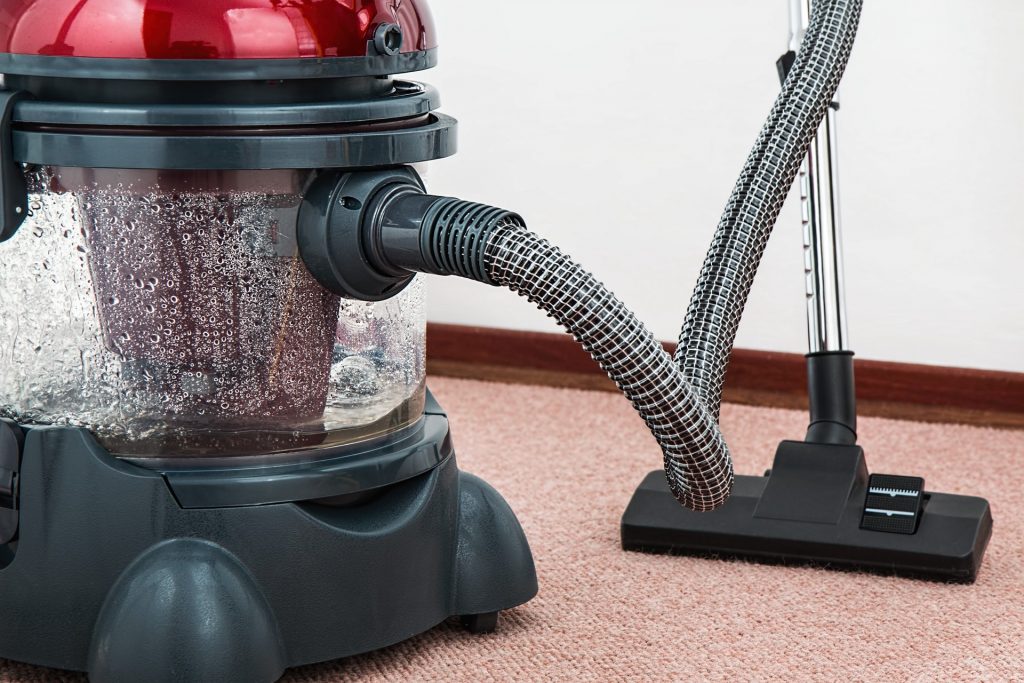 - minute read
- minute read

Are you thinking about moving into shared accommodation? Deciding whether to live with others or go it alone can be a tricky decision when considering the number of advantages and disadvantages of each choice. While house sharing can be a little daunting and offers a higher level of uncertainty, it can also create some amazing memories and form everlasting friendships. To help you decide, check out our pros and cons of house sharing.
A house share refers to a group of people who live in the same property together. Usually, people in a house share aren’t related. Instead, they tend to be friends or a group of strangers who came across the same property on a site like SpareRoom.
Within this, there can be a few variations of the standard house share. For example, two people can sometimes share a single bedroom, or bedrooms can have private bathrooms (ensuite rooms).
One of the main reasons why loads of renters choose to house share is because of the financial benefits. Especially in an expensive city like London, living in shared accommodation is way more affordable when costs like rent, utility bills, wifi and TV subscriptions can be split between multiple people.
Because you’re only paying the rent for your room and other communal spaces – as opposed to the whole house – the size of property you’ll be able to afford will immediately become much bigger. By sharing, you might be able to save up enough money to buy your own place.
Living in a house comes with plenty of responsibilities. In between cleaning, maintaining the garden, staying stocked up on essentials and paying bills, it can start to feel like most of your free time is spent dealing with house-related admin.
As the saying goes, a problem shared is a problem halved and that absolutely applies to living in a shared house. Your tenant responsibilities can be equally split between you and your housemates, massively reducing everyone’s workload. Cleaning in particular is a time consuming and not very enjoyable task so the less you have to do, the better.

Pans, plates, toasters, cutlery, cheese graters – there’s a lot of stuff you have to gather up when moving into a new home. Half the time, you’ll still miss a bunch of essentials and not realise they’re needed until further down the line. When sharing a house, you and your housemates can equally buy kitchen and other home essentials between you, making everyone’s life that little bit easier and cheaper.
The more people you live with, the more people you’ll be able to borrow from. Just be sure to return everything in the same condition as you found it!
When moving to a different area, one of the biggest challenges can be meeting new people and creating an enjoyable social life. When living with others, there’ll always be someone to hang out with. Even if it’s just when making dinner or watching TV, having a group of people that are always on hand for a chat can make a huge difference.
If you’re lucky, then you and your housemates will get on well enough that you become good friends. If this is the case then you can start doing things outside the house like going out for meals or a pint at your local pub.

When moving into your own place, there’s a good chance you’ll need to buy some furniture to deck the accommodation out with. While there are advantages and disadvantages to renting a furnished or unfurnished house, one thing for sure is that renting unfurnished requires much less spending in the first place (as you don’t have to acquire the necessary furniture).
House shares are almost always fully furnished, due to renters changing accommodation more frequently and the majority of renters in shared accommodation not possessing any furniture in the first place.
While living with others can be great and will undoubtedly create some long-lasting friendships, there’s no guarantee that all your housemates will clean up after themselves. The longer you spend in house shares, the more likely you are to run into the types of people who leave their dishes to soak without ever cleaning them, night after night after night.
Dirty pots and pans, clogged up sinks, not taking the bins out, leaving shoes in the hallway and more can all cause annoyance. If house sharing with friends, then these cleaning niggles can take their toll on your friendships. One way you can try and encourage others is through our cleaning rota. This way, everyone can have pre-assigned tasks on a weekly and monthly basis.

In a shared house, finding time for yourself can often be an issue. Your housemates will be able to hear when you come and go, what time you shower at, when you’re most likely to cook dinner and so on. This can make it easy to work out your habits, something that might cause you annoyance, particularly if you’re the kind of person who sometimes enjoys doing certain things – such as cooking – by yourself.
Until you’ve moved in, it’s impossible to know if you and your housemates will click. Sure, you can text and chat beforehand, but there’s no substitute for the real thing.
A clash of different lifestyles is what tends to cause the biggest sticking points here. For example, an introvert who likes a good night’s sleep will likely have some level of conflict with a housemate who likes to throw house parties that last until the early hours. Similarly, someone who likes to keep the kitchen incredibly clean will quickly become irritated with a messy housemate that allows their stack of pots and pans to pile up for days at a time.
What’s key here is trying to keep all housemates on the same page and respectful towards each other. If you can manage this, then living in a house share can be a brilliant experience.
Often paper-thin walls can make finding peace and quiet in a shared home very difficult. Doors opening and closing, loud footsteps, creaking floorboards, food being prepared and late night/early morning showers can all lead to frustration and arguments between housemates.
While you might not care about some noise during the day, it can become an issue when you’re trying to sleep or study, especially if you’re on a different sleep cycle from the rest of your house.
In a house share, housemates tend to move from property to property fairly frequently. While this isn’t always an issue, you might have become close friends with one of your housemates, only for them to move out. When new housemates move in, you’ll have to get to know them all over again which can become a chore over time.
It’s also true that the longer you live in house shares, the larger the number of people you will have lived with. The higher this number gets, the greater the chance that you’ll end up with an untrustworthy housemate.
Most people you live with begin as strangers which can pose potential safety issues. Your bedroom will probably come with a lock but this isn’t necessarily enough to protect you if one of your housemates (or someone they bring into the house) has hostile intentions.
These intentions could be minor, such as sneaking food from the fridge or taking the last toilet roll. On the other hand, your housemate could also sneak into your room when you’re otherwise occupied and take your possessions. Because there’d be no sign of a break-in, getting the police involved with an issue like this might also be difficult.
Whether you’re a more introverted or extroverted person, living in a shared house offers plenty of extra social opportunities. If you have an outgoing and confident personality then you’ll likely thrive in this kind of setting. On the other hand, if you’re a little quieter then living in a shared house can be the perfect opportunity to expand your social circle. Most tenants end up becoming great friends with at least one of their new housemates.
Scientific data even shows that living with others can have significant benefits for mental health and life expectancy, all while warding off loneliness.
While the ultimate goal of most brits is to own their own home, renting represents a solid option in the meantime. When living in a house share, you’re only paying for the room, rather than an entire house or flat. Depending on where you live, this can allow you to save a pretty hefty amount compared to when paying a mortgage.
You also won’t need to worry about paying bills like council tax. If you’re living in a bills-included house share then the responsibilities taken off your plate will extend to gas, electricity and water (potentially along with broadband and TV licence – this will depend on your landlord’s terms).
Finally, one of the useful things about house sharing (and an advantage of renting in general) is that you aren’t tied to a specific location. This makes it easier to move around for work and personal reasons. Many landlords opt for properties that they know will appeal to people working at local businesses and local organisations. This, along with being able to find properties near public transport, often removes the need for a car.
When it comes to setting up and paying for bills in a rented home, there’s a much easier solution. Resooma Bills bundles all your bills into one easy payment, including water, utilities, wifi, TV and council tax. If you’re living in a shared home, we then equally split bills between you and your housemates, so there’s no need to worry about any awkward chats or having to chase people up for their share.
Rather than having multiple direct debits leave your bank account each month, you’ll just have one bill to pay, with each housemate being responsible for their share. Setting up and managing bills can feel like a daunting task, which is where our shared bill packages come in useful. Getting a shared bills package will even lessen some of the cons of house sharing we’ve talked about in this article. Let us handle the stress for you!



All your utility bills in one monthly payment, split between housemates
Get a quote


All your utility bills in one monthly payment, split between housemates
Get a quoteFinding his article helpful? We’ve got plenty more helpful articles on there way. Join our Savvy Sunday mailing list